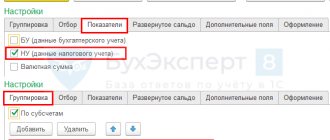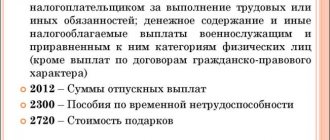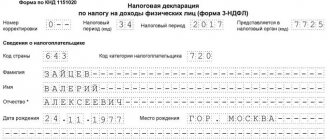Payers and object of taxation
general information
Payers of personal income tax are individuals who, for tax purposes, are divided into two groups:
— persons who are tax residents of the Russian Federation (actually staying on the territory of Russia for at least 183 calendar days within 12 consecutive months);
— persons who are not tax residents of the Russian Federation, in case of receiving income in Russia.
April 30 is the deadline for individual categories of taxpayers required to independently declare income to submit personal income tax returns.
Persons who are not required to submit a tax return have the right to submit such a return to the tax authority at their place of residence throughout the year.
Persons required to independently declare income: individual entrepreneurs; notaries, lawyers, other persons engaged in private practice; individuals for remuneration received other than from tax agents (for example, under property lease agreements, employment agreements); individuals for amounts received from the sale of property owned for less than the minimum period of ownership of the property; individuals, residents of the Russian Federation for income received from sources located outside the Russian Federation; individuals, for income on receipt of which tax was not withheld by tax agents; individuals receiving winnings paid by the organizers of lotteries and other risk-based games; individuals receiving income in the form of remuneration paid to them as heirs of the authors of works of science, literature, art, as well as authors of inventions; individuals receiving income from individuals as a gift from individuals who are not family members and (or) close relatives in accordance with the Family Code of the Russian Federation; income received by inheritance from individuals who are not family members and (or) close relatives in accordance with the Family Code of the Russian Federation; individuals receiving income in the form of the cash equivalent of real estate and (or) securities transferred to replenish the target capital of an NPO. Example: Income received by individuals from teaching and consulting is subject to personal income tax.
Object of taxation
Income subject to personal income tax
Tax Code of the Russian Federation Article 209. Object of taxation
www.consultant.ru
The object of taxation is income received by taxpayers: 1) from sources in the Russian Federation and (or) from sources outside the Russian Federation - for individuals who are tax residents of the Russian Federation; 2) from sources in the Russian Federation - for individuals who are not tax residents of the Russian Federation.
Types of taxable income are listed in Article 208 of the Tax Code of the Russian Federation
Tax Code of the Russian Federation Article 208. Income from sources in the Russian Federation and income from sources outside the Russian Federation
www.consultant.ru
This includes. including income:
from the sale of property owned for less than the minimum period of ownership of the property; from leasing property; income from sources outside the Russian Federation; income in the form of various kinds of winnings; other income.
Income not subject to personal income tax
In accordance with Article 217 of the Tax Code of the Russian Federation, not all income of individuals is subject to personal income tax
Tax Code of the Russian Federation Article 217. Income not subject to taxation (exempt from taxation)
www.consultant.ru
This includes, but is not limited to, income:
from the sale of property owned for more than the minimum maximum period of ownership of the property; income received by inheritance from a family member and (or) close relative in accordance with the Family Code of the Russian Federation (from a spouse, parents and children, including adoptive and adopted parents, grandparents and grandchildren, full and half-blooded (having a common father) and mother) brothers and sisters); income received under a gift agreement from a family member and (or) close relative in accordance with the Family Code of the Russian Federation; other income.
Reporting period and tax period
Reporting period - Year
Tax period - Year
Increasing the personal income tax rate to 15% in 2021: what will change
From 2021, it has become possible to transfer personal income tax on vacation pay, benefits and sick leave no later than the last date
the month in which they were transferred to the employee (before this, income tax had to be transferred on the day of their actual payment).
In case of dismissal of an employee, personal income tax must be withheld and transferred on the same day when he was paid the settlement in connection with his dismissal.
If the employment relationship was terminated before the end of the calendar month, the date of actual receipt of income is considered to be the last day of work for which the employee was accrued income.
Payments under civil contracts do not relate to wages and are regulated not by the Labor Code of the Russian Federation, but by the Civil Code.
In accordance with this, the date of actual receipt of income is considered the day of payment of income under the GPC agreement (including for paid advances).
Therefore, personal income tax on advances and payments under GPC agreements must be withheld and transferred on the day of their actual payment.
The sliders below list the types of reporting that must be submitted for personal income tax employees.
Note!
If a company or individual entrepreneur pays money to
more than 10 individuals
, then from January 1, 2021, forms 6-NDFL and 2-NDFL must be submitted strictly
electronically
. Previously, this responsibility was assigned to those who employed 25 or more people.
Employers are required to keep internal records of income paid, tax deductions provided, as well as calculated and withheld personal income tax amounts for each employee. This must be done in tax registers.
The tax register form is not approved by law, so organizations and individual entrepreneurs must independently develop their own form of this document (download a sample).
Personal income tax on the sale of property
Sale of property owned for more than a minimum period of ownership
The taxpayer is exempt from paying tax upon expiration of the minimum period of ownership of the real estate object. In general, the minimum maximum period of ownership of the real estate object is 5 years . 3 years – for real estate received by inheritance, gift agreement, privatization or under a life annuity agreement. 3 years - for any property acquired before 01/01/2016 When selling property that was owned for more than the minimum period of ownership, there is no need to pay tax. In this case, there is also no need to fill out and submit a tax return.
Tax Code of the Russian Federation Article 217. Income not subject to taxation (exempt from taxation)
www.consultant.ru
The following types of income of individuals are not subject to taxation (exempt from taxation): …….. 17.1) income received by individuals for the corresponding tax period:
from the sale of real estate objects, as well as shares in the said property, taking into account the specifics established by Article 217.1 of this Code; from the sale of other property owned by the taxpayer for three years or more .
The provisions of this paragraph do not apply to income received by individuals from the sale of securities, as well as to income received by individuals from the sale of property (except for residential houses, apartments, rooms, including privatized residential premises, dachas, garden houses or share(s) ) in them, as well as vehicles) directly used in business activities;
Tax Code of the Russian Federation Article 217.1. Features of exemption from taxation of income from the sale of real estate objects ........ 2. Unless otherwise established by this article, income received by a taxpayer from the sale of a real estate object are exempt from taxation, provided that such an object was owned by the taxpayer for a minimum period period of ownership of the real estate object and more. …….. 3. For the purposes of this article, the minimum maximum period of ownership of a real estate object is three years for real estate objects in respect of which at least one of the following conditions is met: 1) ownership of the real estate object was received by the taxpayer by inheritance or under a gift agreement from an individual recognized as a family member and (or) close relative of this taxpayer in accordance with the Family Code of the Russian Federation; 2) ownership of the real estate property was acquired by the taxpayer as a result of privatization; 3) the right of ownership to an object of real estate was received by the taxpayer - the rent payer as a result of the transfer of property under a lifelong maintenance agreement with dependents.
4. In cases not specified in paragraph 3 of this article, the minimum maximum period of ownership of real estate is five years .
Sale of property owned for less than the minimum period of ownership
When selling real estate when it has been owned for less than the minimum period of ownership, the seller must fill out and submit a declaration in Form 3-NDFL and calculate the tax amount independently.
Current legislation gives the seller the right to take advantage of either a tax deduction when selling real estate or to calculate the tax taking into account the costs incurred for its acquisition. When filing a return, the taxpayer himself can determine which option is more profitable for him.
Tax Code of the Russian Federation Article 220. Property tax deductions
www.consultant.ru
clause 2 1) property tax deduction is provided: in the amount of income received by the taxpayer in the tax period from the sale of residential houses, apartments, rooms, including privatized residential premises, dachas, garden houses or land plots or share(s) in the said property located owned by a taxpayer for less than the minimum period of ownership of a real estate property established in accordance with Article 217.1 of this Code, not exceeding in total 1,000,000 rubles ; in the amount of income received by the taxpayer in the tax period from the sale of other real estate that was owned by the taxpayer for less than the minimum maximum period of ownership of the real estate object established in accordance with Article 217.1 of this Code, not exceeding in total 250,000 rubles ; in the amount of income received by the taxpayer during the tax period from the sale of other property (except for securities) that was owned by the taxpayer for less than three years, not exceeding a total of 250,000 rubles;
2) instead of receiving a property tax deduction in accordance with subparagraph 1 of this paragraph, the taxpayer has the right to reduce the amount of his taxable income by the amount of expenses actually incurred by him and documented in connection with the acquisition of this property.
If property that was in shared or joint ownership for less than the minimum period of ownership was sold as a single object of ownership under one sale and purchase agreement, a property tax deduction in the amount of 1,000,000 rubles is distributed among the co-owners of this property in proportion to their share, or by agreement between them (in the case of the sale of property that was in common joint ownership).
If each owner of a share in the ownership of property sold his share, which was in his property under a separate purchase and sale agreement, then he has the right to receive a property tax deduction in the amount of 1,000,000 rubles.
If the taxpayer sold several pieces of property in one year, the specified limits are applied in the aggregate for all sold objects, and not for each object separately.
If the amounts received from the sale of property do not exceed the specified limits, then the obligation to submit a declaration remains, and the obligation to pay tax does not arise.
Calculation of property deduction When calculating the amount of tax taking into account the tax deduction, the formula is used: personal income tax = (C income - IV) x 13%, where C income is the amount of income from the sale of the property; IV – property tax deduction.
Tax calculation procedure
Tax amount = Tax rate * Tax base
Tax rate
The Tax Code of the Russian Federation provides for five tax rates for personal income tax. Different tax rates are established both for types of income and for categories of taxpayers.
tax rate of 9% The tax rate for personal income tax of 9% is applied in the following cases: • receipt of dividends before 2015; • receiving interest on mortgage-backed bonds issued before January 1, 2007; • receipt of income by the founders of trust management of mortgage coverage. Such proceeds must be derived from the purchase of mortgage participation certificates issued by the mortgage manager prior to January 1, 2007.
tax rate of 13% If an individual is a tax resident of the Russian Federation, the majority of his income will be taxed at a tax rate of 13%. Such income, for example, includes wages, remuneration under civil contracts, income from the sale of property, as well as some other income. Please note: from 01/01/2015 dividends are taxed at a rate of 13%, and not 9%, as was previously the case. At the same time, tax deductions provided for in Articles 218 - 221 of the Tax Code of the Russian Federation are not applied to income (dividends) from equity participation in an organization (clause 3 of Article 210 of the Tax Code of the Russian Federation).
In addition, the income of individuals who are not tax residents of the Russian Federation is taxed at a rate of 13% in the following cases: • from employment; • from carrying out labor activities as a highly qualified specialist in accordance with the law “On the legal status of foreign citizens in the Russian Federation”; • from the implementation of labor activities by participants in the State Program for Assistance to the Voluntary Resettlement in the Russian Federation of compatriots living abroad, as well as members of their families who jointly moved to a permanent place of residence in the Russian Federation; • from the performance of labor duties by crew members of ships sailing under the State Flag of the Russian Federation; • from carrying out labor activities by foreign citizens or stateless persons who are recognized as refugees or who have received temporary asylum on the territory of the Russian Federation in accordance with the Law “On Refugees”.
tax rate of 15% Dividends received from Russian organizations by individuals who are not tax residents of the Russian Federation are taxed at a rate of 15%.
tax rate of 30% All other income of individuals who are not tax residents of the Russian Federation is taxed at a rate of 30%.
tax rate of 35% is the maximum and is applied to the following income: • the cost of any winnings and prizes received in competitions, games and other events for the purpose of advertising goods, works and services, insofar as they exceed the established amounts; • interest income on deposits in banks located on the territory of the Russian Federation, income in the form of interest (coupon) on circulating bonds of Russian organizations denominated in rubles, insofar as they exceed the established amounts; • savings on interest when taxpayers receive borrowed (credit) funds in excess of the established amounts; • in the form of payment for the use of funds of members of a credit consumer cooperative (shareholders), as well as interest for the use by an agricultural credit consumer cooperative of funds raised in the form of loans from members of an agricultural credit consumer cooperative or associated members of an agricultural credit consumer cooperative, insofar as they exceed the established amounts .
The tax base
The tax base is determined separately for each type of income, for which different tax rates are established.
Tax calculation by tax agents
Tax on the income of lawyers is calculated, withheld and paid by bar associations, law offices and legal advice centers.
Tax amounts are calculated by tax agents on an accrual basis from the beginning of the tax period based on the results of each month in relation to all income in respect of which a tax rate of 13% is applied.
The tax amount in relation to income for which other tax rates are applied is calculated by the tax agent separately.
The tax amount is calculated without taking into account the income received by the taxpayer from other tax agents and the tax amounts withheld by other tax agents.
Tax agents are required to withhold the accrued tax amount directly from the taxpayer’s income upon actual payment.
The tax agent withholds the accrued amount of tax from the taxpayer at the expense of funds paid to the taxpayer, and the withheld amount of tax cannot exceed 50% of the payment amount.
If it is impossible to withhold from the taxpayer the calculated amount of tax, the tax agent is obliged, no later than 1 month from the date of the end of the tax period in which the relevant circumstances arose, to notify the taxpayer and the tax authority at the place of his registration in writing about the impossibility of withholding the tax and the amount of tax.
Changes in tax legislation – 2021
If there is income from several sources, each tax agent withholds tax only from his part, without taking into account the totality of tax bases for the taxpayer as a whole. For example, two companies pay RUB 3,000,000 each. They withhold personal income tax at a rate of 13%, although the total income for the year is more than RUB 5,000,000.
Then the tax office will receive information about all payments, summarize it, calculate the excess and charge personal income tax at an increased rate. The amount to be paid will be indicated in the tax notice; it will need to be paid before December 1 of the next year.
Typically, personal income tax is distributed between budgets and goes to ordinary expenses: housing and communal services, hospitals, sports, roads, culture.
But the tax at the increased rate will be collected and spent separately. These amounts are planned to be used for a specific purpose: as additional funding for the treatment of children with rare and dangerous diseases.
In total, in 2021 it is planned to receive about 60 billion rubles in this way. That would be enough for about 375 shots of Zolgensma, the world's most expensive drug that saves the lives of children with spinal muscular atrophy. Now parents and charitable foundations are raising money for this medicine, but treatment cannot be delayed.
Over three years, additional income from personal income tax could amount to 190 billion rubles. If the tax increase really goes for such noble purposes, it will turn out that the richest people in the country will be forced to chip in for the treatment of children - and will give an insignificant part of their income. With a salary of RUR 1,000,000 per month, the additional tax will be about 1% of total annual income. That is, out of a million earned, you need to give about 10 thousand to save someone’s life.
How this money will be spent, whether it will reach the regions and specific people, whether children will be able to receive real help is another question. I would like to hope that the process of financing from a new source will be simple and clear.
In terms of property taxes, payers - companies need to take into account:
- updating the property tax return form;
- cancellation of declaration of transport and land taxes (we no longer report for 2020);
- a new obligation to inform tax authorities about the objects of taxation of TN and ZN if they have not sent a tax notice;
- changing the procedure for paying transport and land taxes and advances on them.
Important! From 2021, organizations pay TN and ZN for the year no later than March 1 of the next year, and advances no later than the last day of the month following the reporting quarter. The timing of advance payments is no longer set by regional authorities (clause 68 of Article 2 of Law No. 325-FZ of September 29, 2019). For example, the advance payment for the 1st quarter of 2021 must be paid no later than 04/30/2021.
There will be amendments to the Tax Code of the Russian Federation regarding the payment of tax on lost and destroyed vehicles.
Traditionally, the minimum wage has been increased. Its approved size is RUB 12,392. But there is a possibility that the procedure for calculating the minimum wage and, accordingly, its size will change.
The tax office will have fewer reasons not to accept the declaration, and they will be recorded directly in the Tax Code of the Russian Federation, and not in the regulations, as now.
Tax authorities will warn taxpayers about blocking accounts for failure to submit reports.
For transactions with some goods, you will have to submit a new report to the Federal Tax Service.
Some tax payment details will change. BCCs from 2021 will be determined by a new order of the Ministry of Finance (there will also be new BCCs for personal income tax). But the government decided not to change the payment rates for new tax assessments.
The SME register will be updated not once a year, but monthly. From 01/01/2021, the details and procedure for filling out travel forms will be updated.
And good news: December 31, 2021 will be a day off.
- Legislative changes on personal income tax from 01/01/2021
- Income categories for personal income tax in ZUP 3
- Calculation of personal income tax on a progressive scale
- Transition period in 2021-2022.
- Calculation of personal income tax for preferential non-residents
- New form 6-NDFL from the 1st quarter of 2021
- From 01/01/2021, the amounts of paid income are not recorded in registers for personal income tax accounting purposes and are not reflected in personal income tax reports (ZUP 3.1.14.369 / 3.1.16.108) Payment of income in 2021
- Payment of income in 2021









